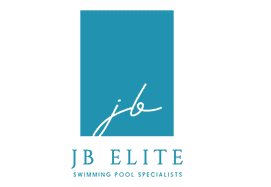How To Find A Leak In Your Swimming Pool
Leaks in swimming pools are usually a reason for concern and should be handled right away, but they aren’t necessarily a tsunami of issues. The majority of leaks can be readily identified, fixed, and relatively affordably. Here is the JB Elite quick guide to identifying and fixing swimming pool leaks in residential pools.
Is My Pool Leaking?
It may be difficult to distinguish between leakage and normal evaporation if the water loss is slight. There are a few simple warning signals to watch out for, though. Indicators of a potential leak include damp spots near the pool and the presence of soil particles in the water. Generally speaking, there is probably a leak if water is beginning to emerge where it shouldn’t be or if pieces of your yard are washing into your pool. Similar to this, you should check your pool for leaks if you are losing more water than you would anticipate from evaporation given the time of year.
Are Swimming Pool Leaks A Problem?
Leaks in swimming pools should be handled carefully for a number of reasons. Water seepage into the pool’s supporting ground might weaken the structure and lead to unusual pressure points that could cause harm. Chlorine should not be added to the soil because it is a chemical that can harm the ecosystem. Depending on where the leak occurs, it may harm supporting structures, filters, and valves, which can be expensive to repair. You might spend more on water, heating, and chemicals if your pool is leaking.
What Can I Do About A Swimming Pool Leak?
It’s crucial to identify the issue accurately if you wish to tackle a leak yourself. Patching up the hole doesn’t always cure the problem because visible leaks are frequently caused by a more significant, concealed condition. To start, inspect the heater, pump, filter, and pipe valves, paying close attention to the areas around the fittings. Check the steps, cleaner lines, lighting, and skimmers after that. Leaks can occur anywhere when hard materials come into touch with water, thus these are typically the locations. Replace the o-rings and turn off the filtration system to check for air bubbles if the leak is still not visible. Frequently, the return line will be the issue, so be careful to properly inspect this.
Is It Worth Calling A Professional?
The quickest and most cost-effective approach to handle the issue if your pool is losing more than a few centimetres each day is with professional assistance. We employ specialised testing equipment to identify leaks. For example, with liner pools, we can electronically trace any tiny tears or holes that may not be seen in the liner. We can also pressurise any pool pipework to identify any runs that may be leaking, if any. A professional inspection can also detect whether a leak is concealing a more serious structural issue, which can stop the problem from developing into a frequent and costly occurrence.
Home swimming pools that are properly cared for should never leak, although water can be challenging to manage. Don’t let your money disappear if you think your pool has a leak. Call JB Elite at 01536 646 007.

